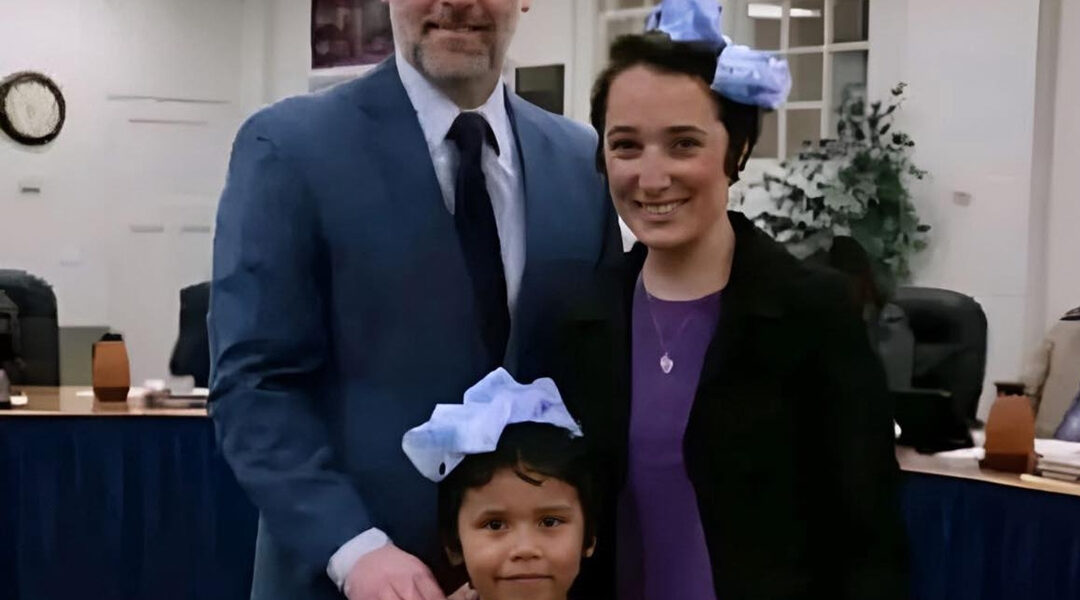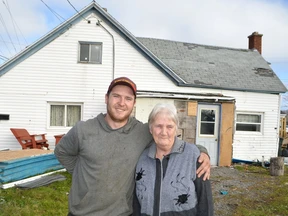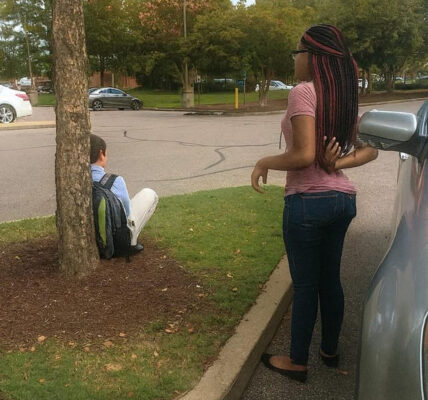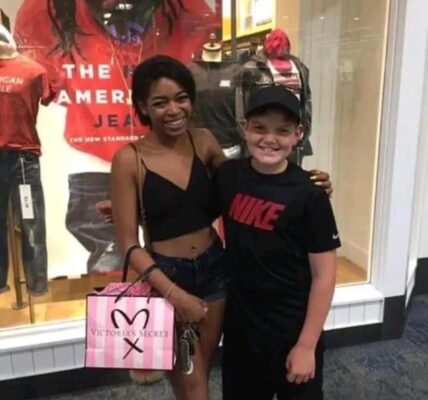
Kindergarten is supposed to be a place of joy—tiny desks, bright posters, crayons scattered across tables, and the sound of laughter echoing down the hallways. For most children, it’s the beginning of learning, of making friends, of building confidence in who they are. But for five-year-old Prisilla, school had suddenly become a place of pain.
It started with whispers. Then giggles. Then teasing that grew louder each day. Her classmates pointed at her short haircut and told her she looked like a boy. What was just hair to them became a heavy weight on her small shoulders. For a child still learning who she was, the words cut deeply.
Her teacher, Shannon Grimm, noticed the change. The once-bubbly girl was quieter now. She walked with her head down, shoulders slumped, tears sometimes filling her eyes. “She was really sad and depressed at school because her friends think that she looks like a boy,” Shannon later explained. It was more than playground teasing—it was affecting Prisilla’s confidence, her happiness, even her willingness to come to school.
One afternoon, Prisilla admitted to Shannon that she cried over it. She told her teacher how much it hurt to feel like she didn’t belong. And Shannon, sitting with this small, vulnerable child, felt a stirring in her heart: something had to change.
And so, Shannon made a decision.
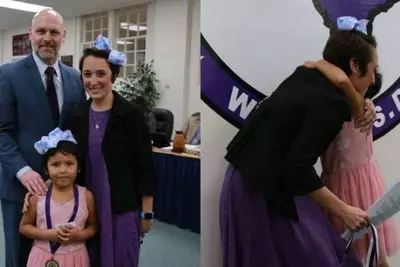
It wasn’t the kind of decision teachers are trained for. It wasn’t a lesson plan or a discipline strategy. It was something far more personal, something that came not from a manual but from the heart. To show Prisilla that her haircut didn’t define her worth, Shannon decided to cut her own hair short. Not just a trim—shearing it into the same kind of cropped cut that had brought so much unwanted attention to her student.
The night before, Shannon sat in the salon chair, watching as the scissors worked through her long hair. Each snip was a statement: You are not alone, Prisilla. I will stand with you.
When she walked into her classroom the next morning, the room fell into stunned silence. Her students’ eyes grew wide. The teacher they’d always known with flowing hair was suddenly different. The chatter started—“Her hair is short!” “She looks different!” For a moment, it was chaos. But then something extraordinary happened.
Prisilla’s eyes lit up. She walked over, wrapped her arms tightly around Shannon, and held on. No words needed to be spoken—the hug said it all. Her teacher had chosen her. Chosen to share her burden. Chosen to show the whole class that beauty and worth weren’t measured in inches of hair.
For Shannon, the adjustment wasn’t easy. She admitted she felt self-conscious at the grocery store, or out in public, noticing the sideways glances. She sometimes missed the comfort of her longer hair. But every time she thought about Prisilla, she knew it was worth it. “I don’t want my students to ever feel like their confidence is down, that they don’t want to come to school because of the way people look at them and say things to them. I want them to come to school and love being at school,” Shannon said.
She reminded herself of something simple but powerful: hair always grows back. But a child’s confidence—once broken—can take years to heal. If cutting her hair meant that one little girl could walk into class with her head held high, then it was a sacrifice Shannon would make again and again.
And it worked. Prisilla began smiling more, standing a little taller, and slowly reclaiming the joy that had been stolen from her. The lesson wasn’t just for her—it was for the entire class. They saw that their teacher was willing to share in her student’s pain, to take action instead of just offering words. They learned that kindness isn’t always about grand gestures. Sometimes, it’s about showing up, side by side, saying: You are not alone.
In the years to come, Prisilla may forget the exact words that were said in kindergarten, or the names of the classmates who teased her. But she will never forget the day her teacher walked in with short hair. She will never forget the hug, or the feeling of being loved, defended, and seen.
Because sometimes the most powerful lessons aren’t about math or reading. They’re about empathy. About courage. About choosing love when it costs you something.
And thanks to one teacher’s scissors, one little girl learned that her worth was never tied to her hair—it was, and always will be, in who she is.
